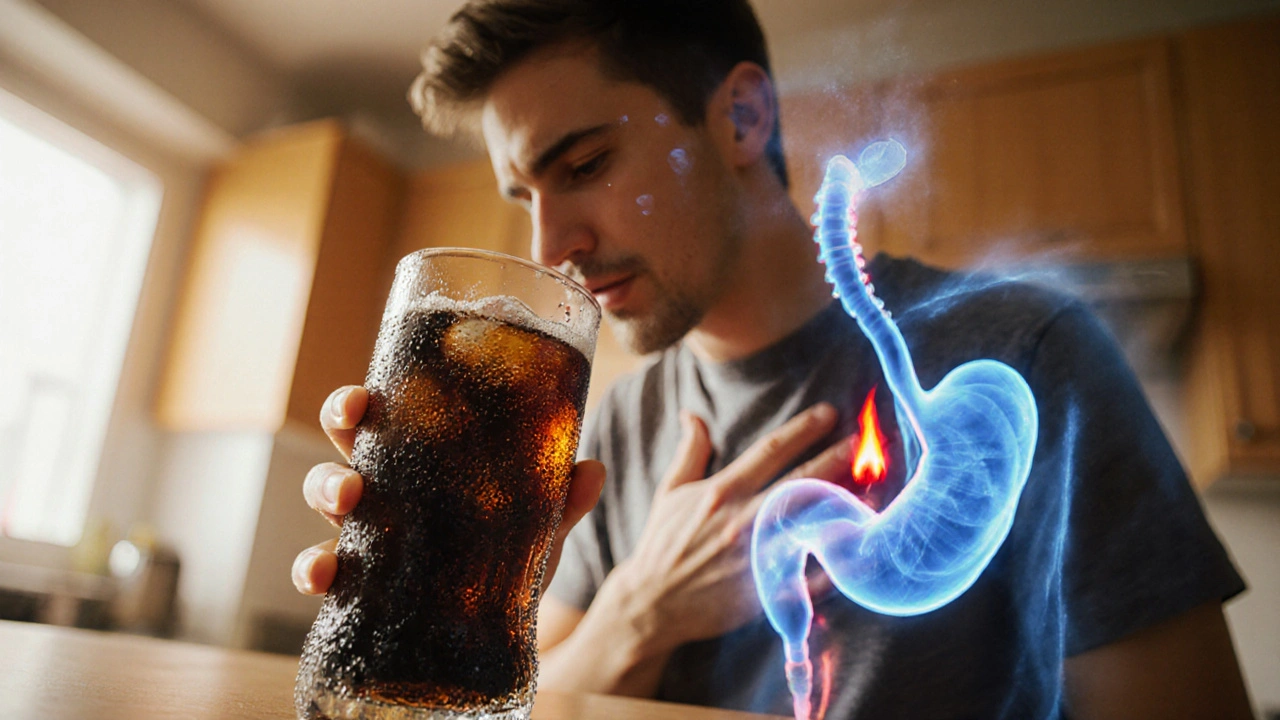Heartburn Help: Quick Relief & Long‑Term Tips
If that burning feeling in your chest shows up after a meal, you’re not alone. Heartburn happens when stomach acid sneaks back into the esophagus, and it can turn any dinner into an uncomfortable ordeal. The good news? Simple changes and a few handy tricks can calm the burn fast and keep it from coming back.
What Triggers Heartburn?
Most people notice heartburn after eating certain foods. Spicy dishes, fried snacks, citrus fruits, tomatoes, chocolate, and anything high in fat are common culprits. Even drinks like coffee, tea, soda, and alcohol can relax the lower esophageal sphincter—the muscle that normally keeps acid down.
Portion size matters too. Overeating stretches your stomach and pushes more acid toward the throat. Eating right before bedtime is another easy mistake; lying flat makes it harder for gravity to keep acid where it belongs. Stress isn’t a direct cause, but tense muscles can increase acid production, so a stressful day often ends with a sore chest.
Simple Ways to Calm the Burn
First, try an over‑the‑counter antacid. A chewable tablet or liquid neutralizes acid within minutes and is perfect for occasional flare‑ups. If you need longer relief, H2 blockers (like famotidine) or proton‑pump inhibitors (like omeprazole) can reduce acid production for several hours.
Beyond meds, change the way you eat. Cut meals into smaller portions, chew slowly, and avoid lying down for at least two to three hours after a bite. Swap trigger foods for gentler options: lean proteins, oatmeal, bananas, and steamed veggies are usually safe.
Stay upright after eating—take a short walk or simply sit up straight. A pillow wedge can lift the head of your bed by six inches, helping nighttime sufferers keep acid down while they sleep.
If heartburn shows up often—more than twice a week—it’s time to talk to a doctor. Persistent reflux can damage the esophagus and lead to more serious problems. Your provider may suggest prescription meds or run tests to rule out an ulcer or hiatal hernia.
Bottom line: heartburn is mostly about what you eat, when you eat, and how you treat it. Keep a quick list of trigger foods, use antacids for sudden burns, and adopt the small lifestyle tweaks that keep acid where it belongs. With these steps, you can enjoy meals without the dreaded after‑taste of fire.
How Carbonated Drinks Trigger Acid Indigestion - Causes, Symptoms & Relief
Learn why carbonated drinks trigger acid indigestion, which ingredients worsen heartburn, and practical tips to find relief today.
Hiccups and Heartburn: What's Really Connecting Them?
Ever wondered why hiccups and heartburn seem to show up together? This article unpacks the real connection—it’s not just random bad luck. You’ll learn why your hiccups sometimes tag along with a fiery chest and get tips on stopping both before they ruin your day. We’ll bust myths, spotlight triggers you probably haven’t noticed, and offer advice that actually works when you just want things to calm down. Say goodbye to suffering in silence.


